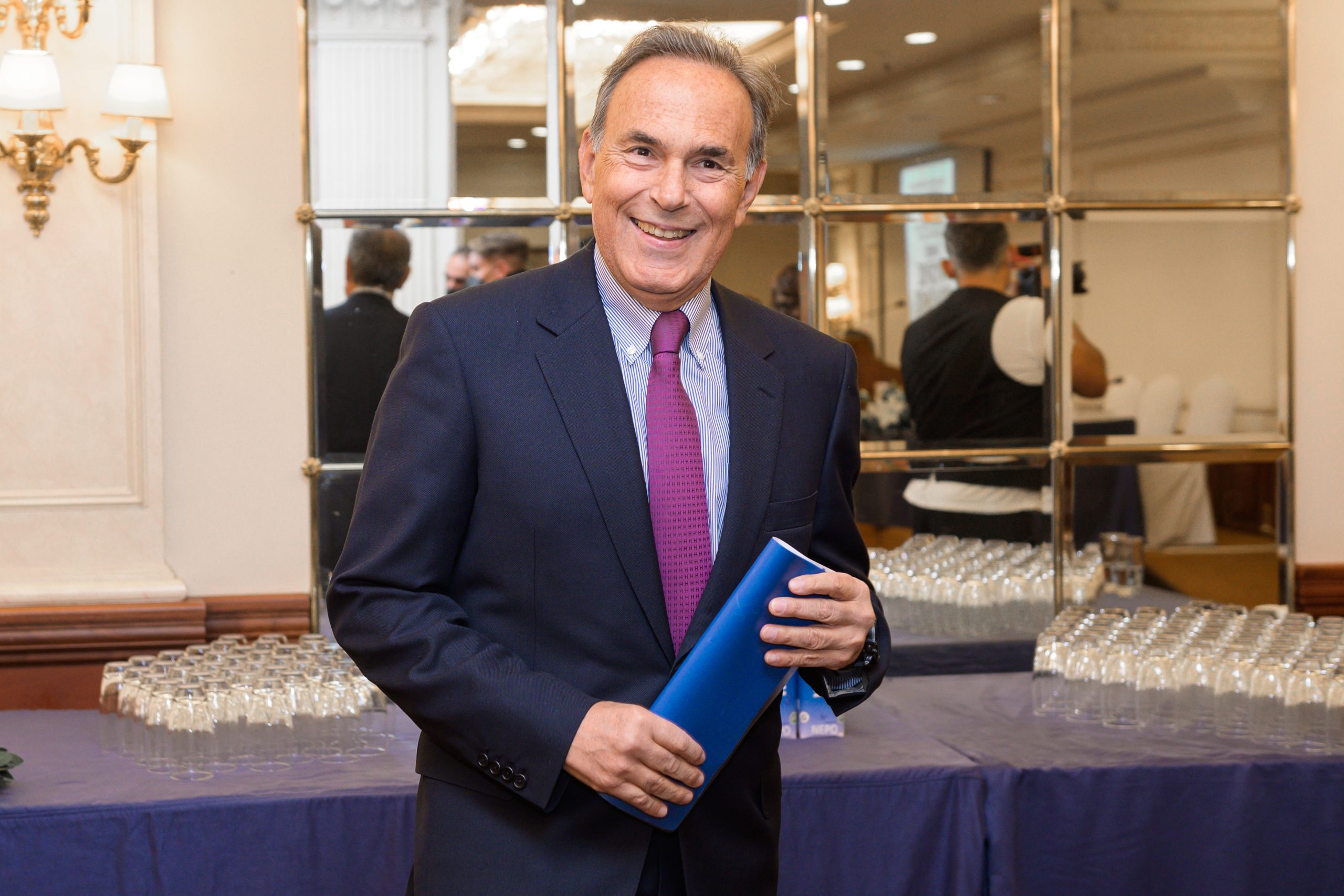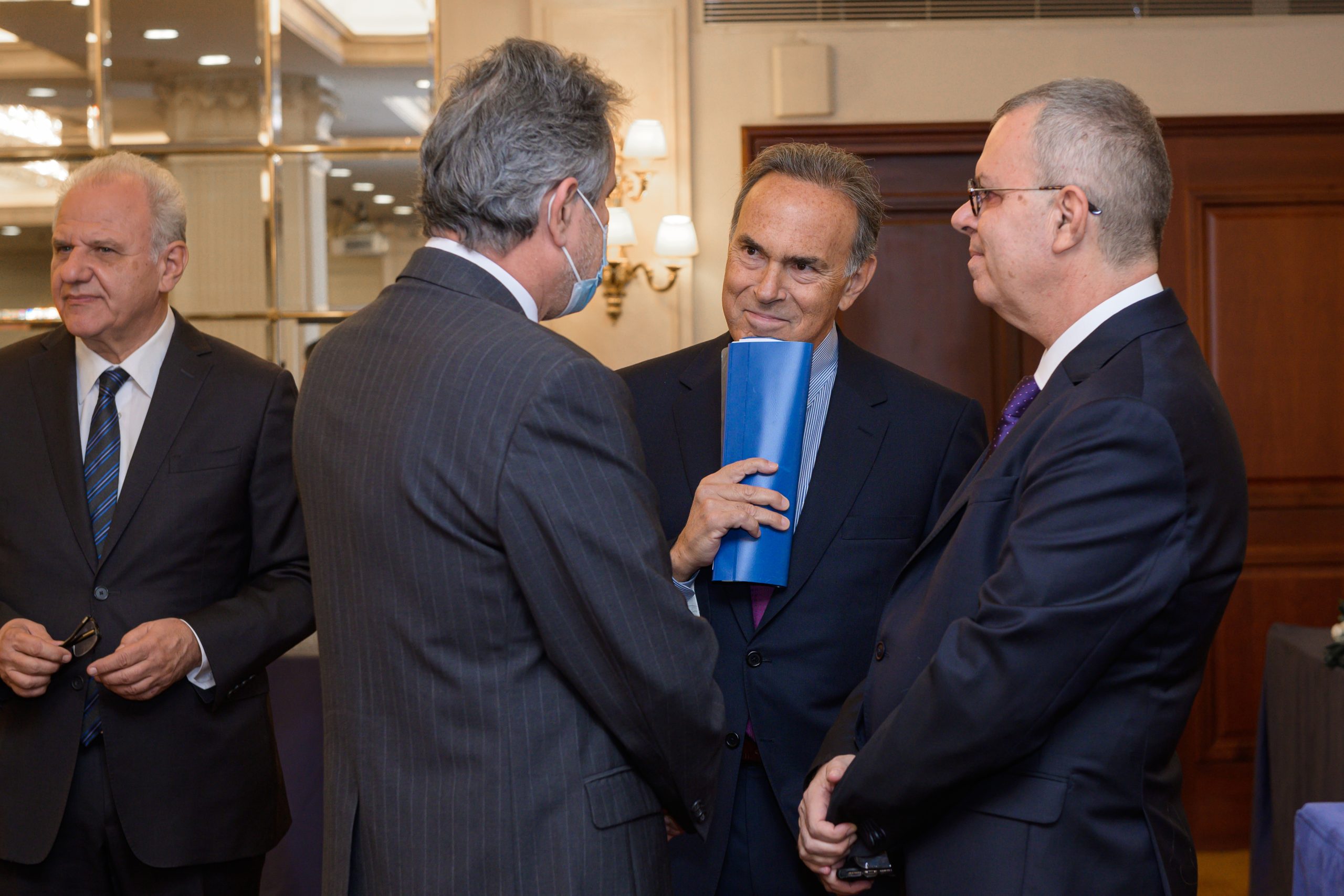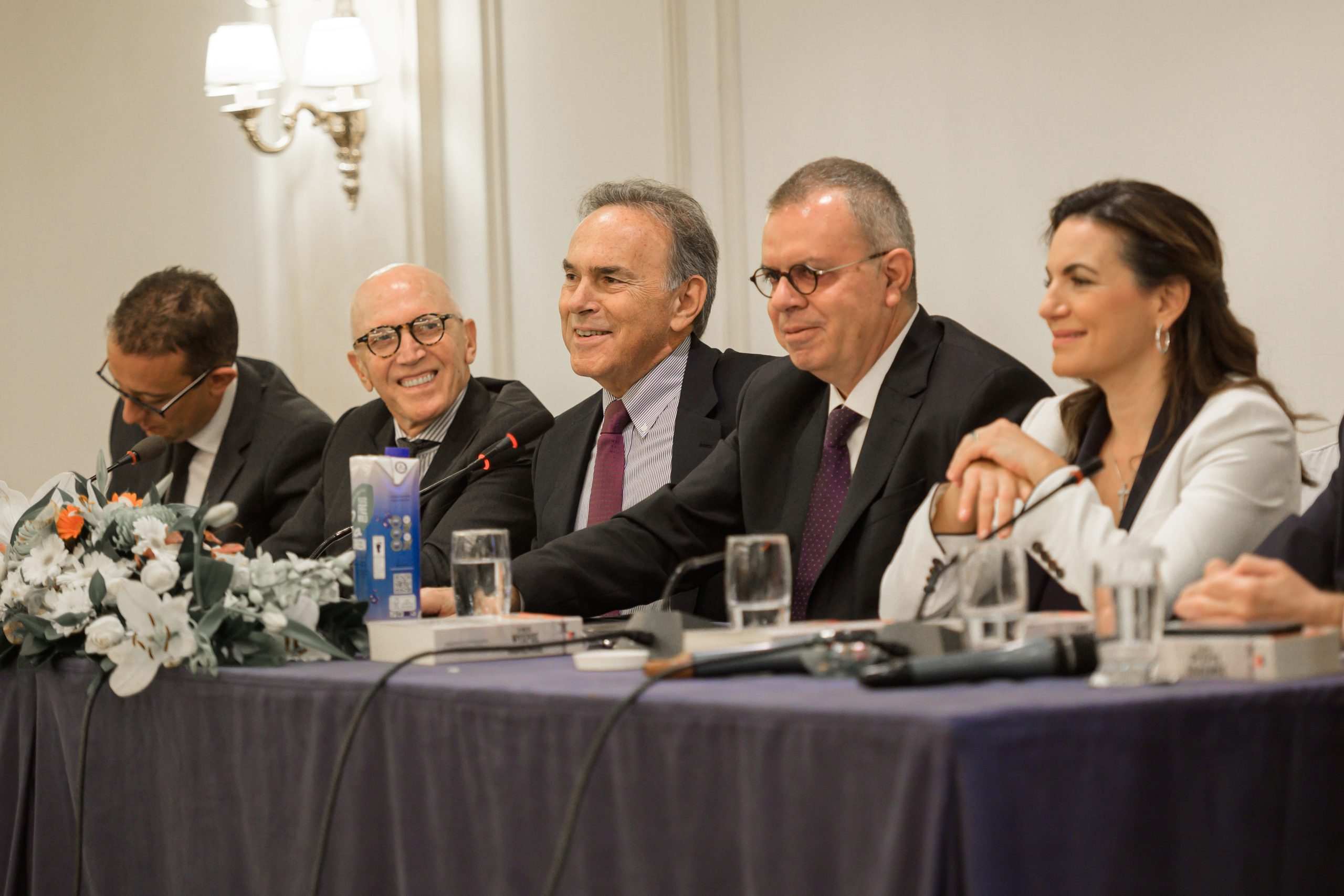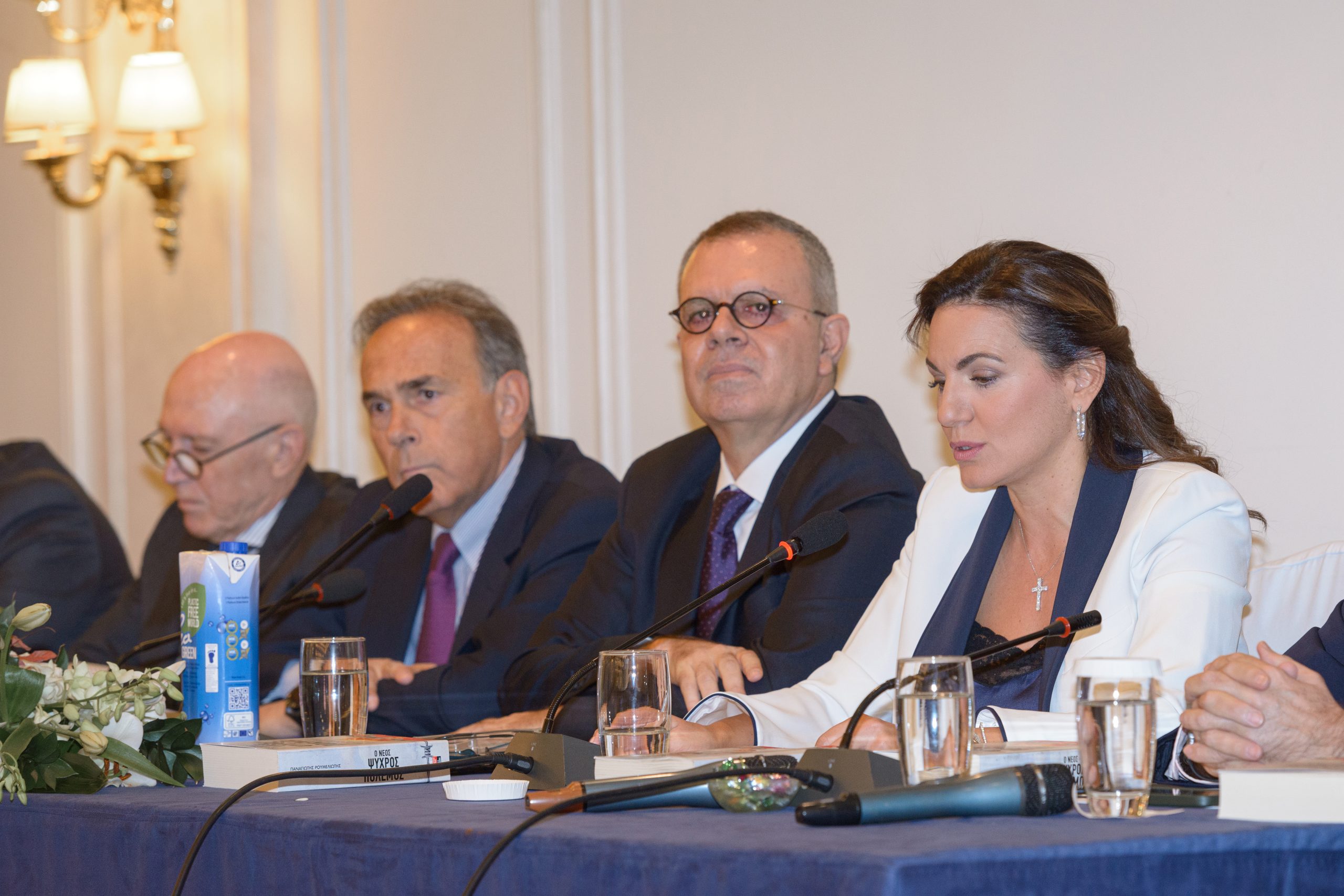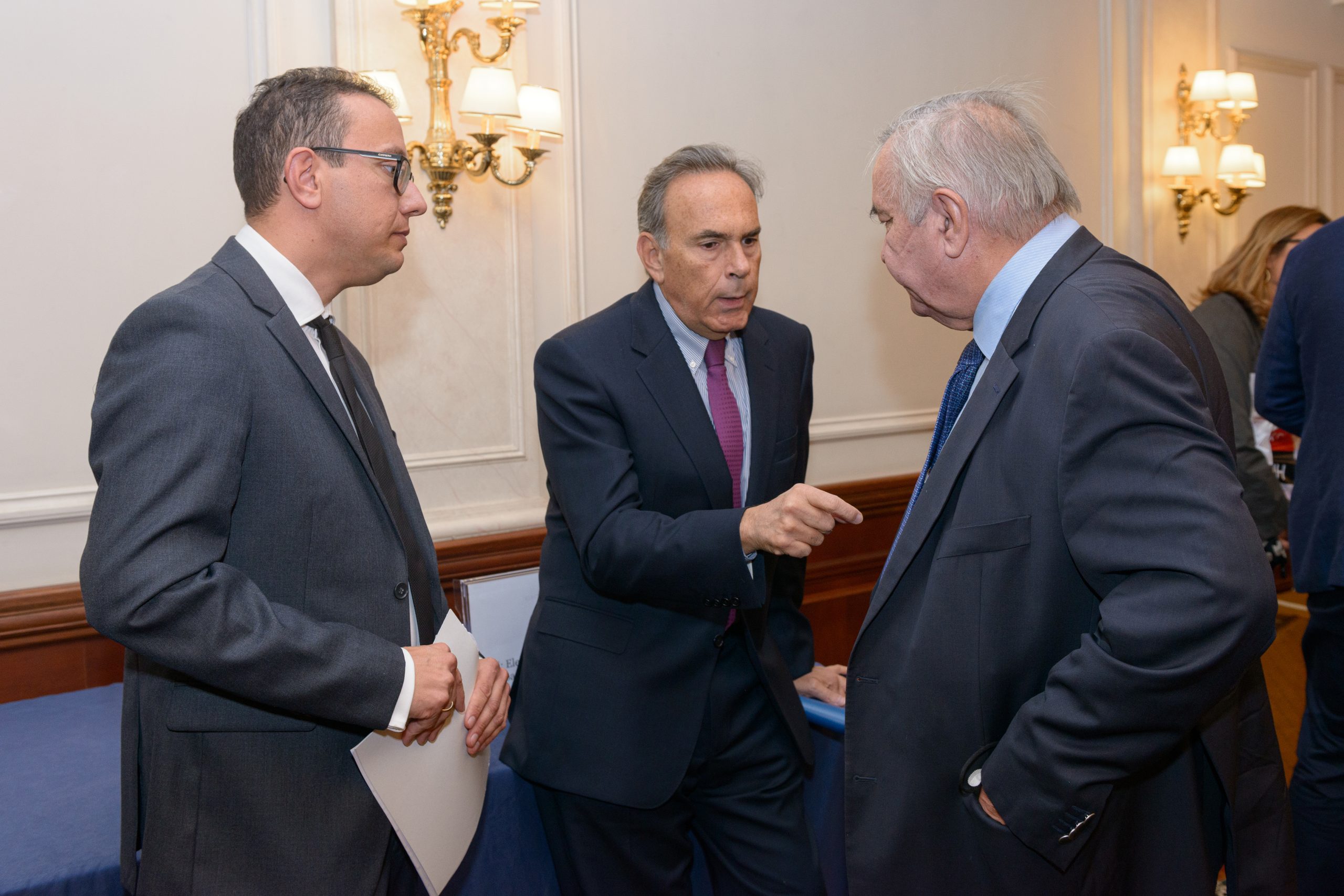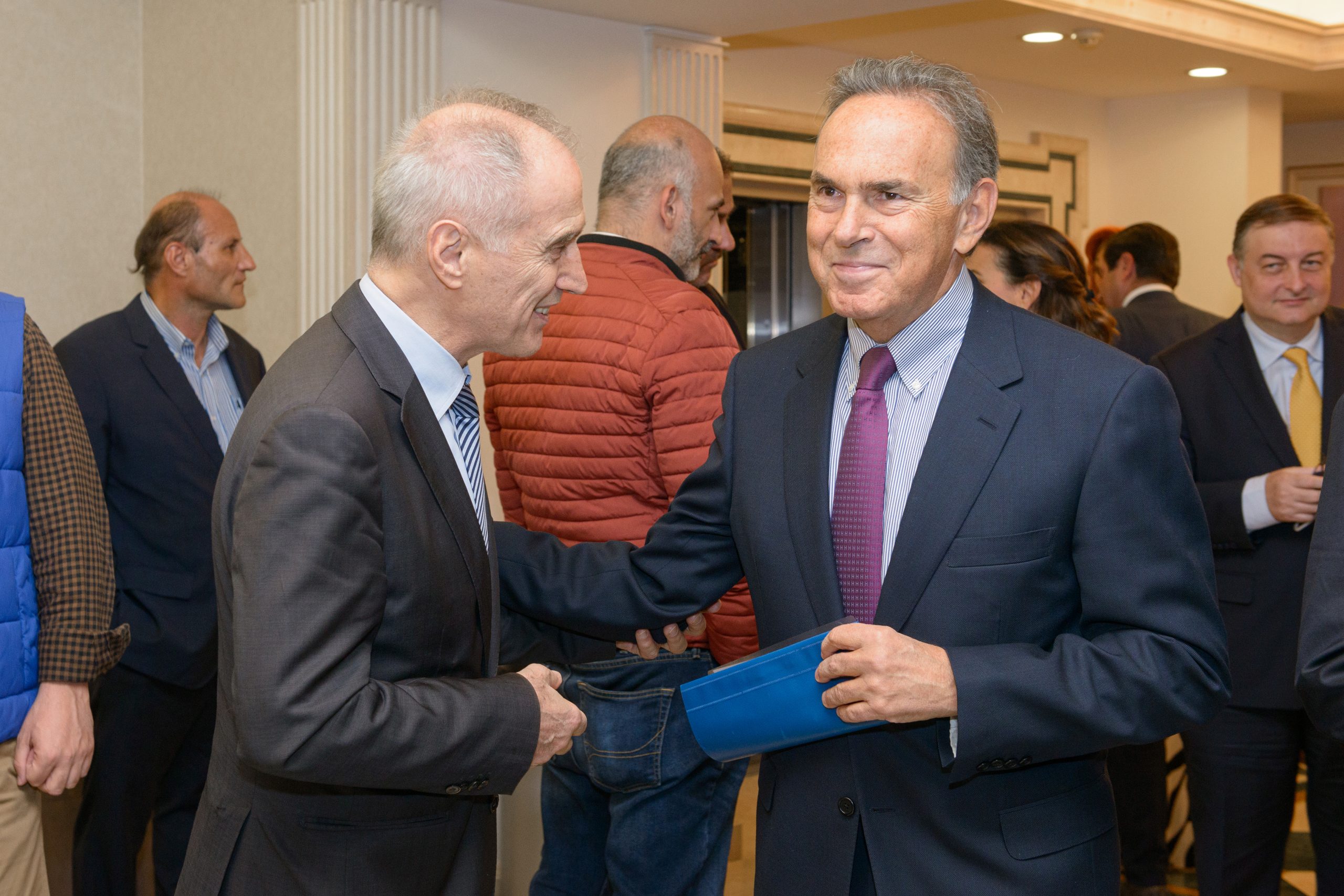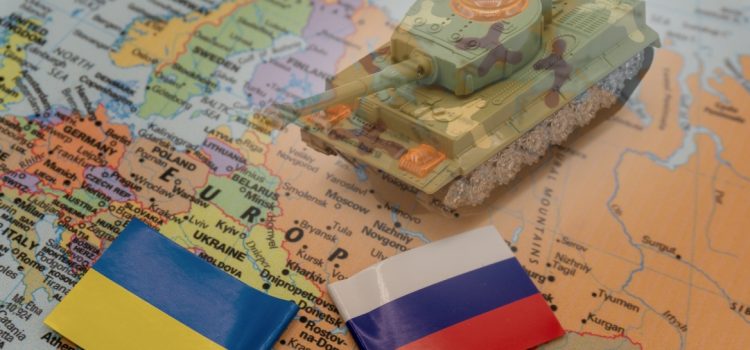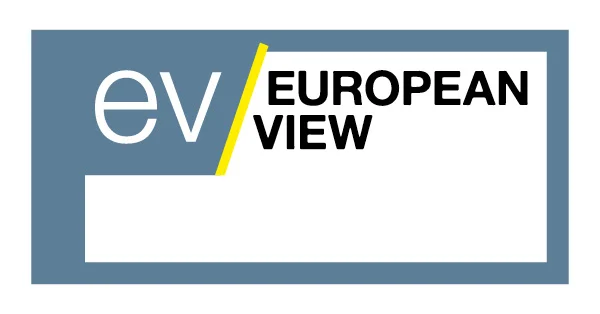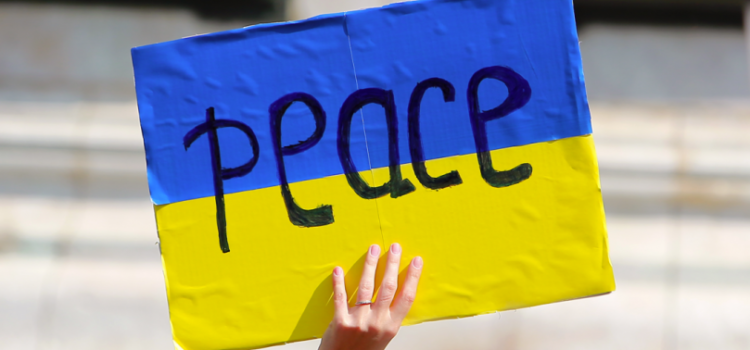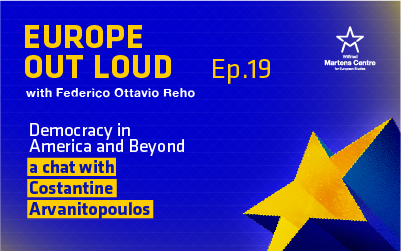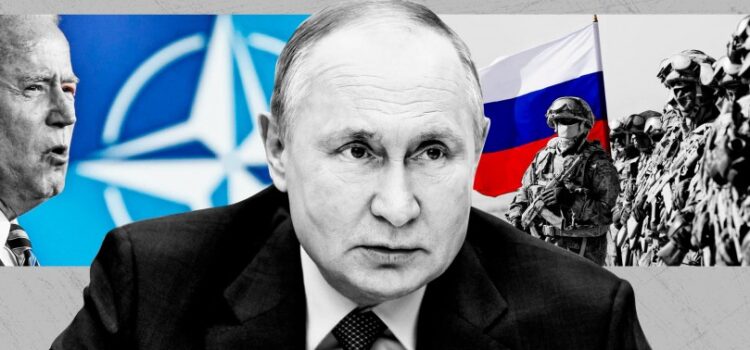Abstract
Democracy is retreating worldwide. As Freedom House reports, the US has not escaped this trend. The system of checks and balances of American democracy managed to thwart Trump’s assault on democracy. But together with longstanding institutional and structural defects, his
presidency clearly indicates that American democracy is on the verge of political decay. Political polarisation, inequalities, identity politics and the inability of the two political parties to reach compromises are further testing the American democratic institutions. To avert decay, the US
needs a reform coalition to bring about institutional changes; and more importantly, to establish inclusive economic policies and a renewed focus on citizenship, duty and a shared purpose.
Keywords
Democracy, Checks and balances, Vote suppression, Polarisation, Inequalities, Identity politics.
Introduction
Democracy is retreating worldwide. Freedom House reports that the number of democracies is shrinking and that democracy is declining in the US itself (Freedom House 2019). The same report maintains that the great challenges facing American democracy started before Donald Trump’s presidency. ‘Intensifying polarization, declining economic mobility, the outsized influence of special interests, and the diminished influence of fact-based reporting in favor of bellicose partisan media’ were some of the problems already facing American democracy before Trump (2019, 17).
The US is in the midst of a political and constitutional crisis that could seriously threaten its democracy over the next years. The storming of Capitol Hill on 6 January 2021 was an assault on democracy that continues unabated. The hope that Trump would fade away after the January 2021 insurrection and his subsequent electoral defeat has proved futile. Trump’s shadow lingers over the political system and the Republican Party. He has built a movement around a cult of personality that allows him to maintain high rates of popularity and support among his followers.
Under Trump’s ‘hostile takeover’ of the Republican Party, as Jared Kushner phrased it (cited in Diamond 2020), all kinds of tactics are being used to bend the rules to the party’s advantage, including suppressing the vote. State legislatures are enacting legislation
that amounts to vote suppression, while giving themselves greater control of the election certification process (Kagan 2021). More than 100 leading scholars of democracy have signed a Statement of Concern warning about grave threats to American democracy stemming from the efforts to suppress voting (Norris 2021).
This article argues that American democracy is being threatened with political decay by the lasting effects of Trump’s presidency together with longstanding institutional defects, as well as extreme polarisation, widening inequalities and identity politics. For this decay to be averted, there is urgent need of enlightened leadership and a broad reform coalition to bring about institutional changes; inclusive economic policies; and a renewed focus on citizenship, duty and shared purpose.
The effects of Trump’s presidency on American democracy
Aristotle warned that demagogues who could capture the minds of the people posed a real threat to democracy. Aware of these risks, ‘the framers of the Constitution instituted a system of checks and balances. The point was not simply to ensure that no one branch of the government dominated the others but also to anchor in institutions different points of view’ (Snyder 2021). They designed a system ‘to protect minority points of view, to protect us from leaders inclined to lie, cheat and steal, and to protect the majority against minorities who are determined to subvert the constitutional order’ (Galston and Kamarck 2022).
Proving resilient at both the federal and state levels, these checks and balances managed to thwart the Trumpian assault on democracy. Congress held its own, confronting the president with impeachment charges not once but twice. The judiciary remained independent and resisted his attempts to overturn the election results. A total of 62 lawsuits that Trump’s legal team filed were either dropped or unsuccessful in court. Many of these decisions were made by Republican judges. The former president’s biggest disappointment may have been ‘the Supreme Court’s decision not to hear election challenges concerning states he claimed he had won’ (Galston and Kamarck 2022).
The states also resisted Trump’s federal actions or decisions, especially regarding the pandemic. And the military upheld the long democratic tradition of civil–military relations in the US whereby the armed forces, under civilian control, stay out of politics. Finally, the press remained fundamentally free even though Trump ‘spent four years using the bully pulpit of the presidency to mock the press. He revoked the press credentials of reporters he did not like. Nevertheless, reporters were not afraid to call out his lies’ (Galston and Kamarck 2022). However, the discrediting of the traditional media—together with the decline of local news, which was a result of the financial crisis of 2008—and Trump’s skilful use of social media, especially Twitter, led to distortion of the truth and reality during his presidency. In a functional representative democracy, the social media cannot be citizens’ only source of information. Social media ‘supercharge the mental habits by which we seek emotional stimulation and comfort, which means losing the distinction between what feels true and what actually is true’ (Snyder 2021).
The checks and balances of the American political system withstood the Trump presidency’s frontal assault on the democratic institutions, norms, conventions and traditions of the US. However, his presidency polarised this system to the extreme and exacerbated weaknesses in its institutions. His constant attack on the truth, culminating in the ‘Big Lie’ of the rigged election, has misinformed and disoriented US citizens and has sapped the foundations of American democracy. ‘There is no guarantee that constitutional democracy will survive another sustained—and likely better-organized—assault in the years to come’ (Galston and Kamarck 2022).
Institutional factors
The deterioration of democracy started even before Trump, it being the result of ‘the persistent gridlock in US Congress, deepening political polarisation and the corrupting role of dark money in politics. It accelerated during the last four years, with attacks on the news media, risks to the impartiality of the courts, and the weakening role of Congress as an effective check and balance on executive powers’ (Norris 2021). Moreover, the assortment of deep structural problems and sweeping historical changes that are taking place simultaneously make this an existential crisis for American democracy.
The aftermath of the 2020 presidential election highlighted the problems of the ‘unique combination of a majoritarian electoral system with strong minoritarian institutions’ (McCoy and Press 2022). The Senate, for example, is highly disproportionate in its representation, with ‘two senators per state regardless of their population, from Wyoming’s 580,000 to California’s 39,500,000’ (McCoy and Press 2022). This disproportionality becomes particularly problematic when it comes to the electoral college. ‘All but two states give the winner of the popular vote in their state all of the electors from that state’ (Lessig 2021). This disproportionality has resulted in elections being focused on the so-called swing states. These states provide sufficient electoral college votes to win the election regardless of the outcome in the popular vote.
This, in effect, is how Trump won in 2016, despite his claim that he had won not only the electoral college but the popular vote as well. His argument was that Hillary Clinton had won the popular vote because millions of people had voted illegally (O’Toole 2020). After the 2020 election Trump actively tried to overturn the will of the people. When that failed, the assault on the electoral process took a more organised form. ‘Republican majorities in state legislatures are passing laws making it harder to vote and weakening the ability of election officials to do their jobs. Trump’s supporters are also trying to defeat incumbents who upheld the integrity of the election and replace them with the
former President’s supporters’ (Galston and Kamarck 2022).
If you add to these efforts the traditional gerrymandering, you have a new organised attack against American democracy from the ground up. Partisan gerrymandering has resulted in a radical manipulation of legislative districts. A study by the USC Schwarzenegger Institute found that after the 2018 election the result of gerrymandering was that almost 60 million Americans live under minority rule in their state legislatures.
Polarisation
The destructive power of polarisation in American politics makes things even worse. A recent Carnegie Endowment article argues that ‘the United States is the only advanced Western democracy to have faced such intense polarization for such an extended period’ (McCoy and Press 2020). According to the authors one of the reasons for this intense polarisation is the so-called white backlash, the reaction of the white population to a demographic shift that threatens their dominant position in all arenas of power. Polarisation goes beyond politics to the basis of the social pyramid, affecting even consumer interests and lifestyle preferences (Ruch et al. 2020). The result is a polarised political system and an increasingly polarised society.
There has been a fundamental change in the ideological nature of the two major parties in the US, and this has contributed to the intensity of the country’s political polarisation. The two parties have been transformed from large associations encompassing wide ideological trends to ideologically homogeneous parties. In recent years partisan identities have gradually merged ‘with our racial, religious, geographic, ideological, and cultural identities’ (Klein 2020). These merged identities make the two-party system highly polarised and rigid and have ‘attain[ed] a weight that is breaking our institutions and tearing all the bonds that hold this country together’ (Klein 2020).
Democratic institutions rest on norms, as well as ‘on compromise, cooperation, respect for truth and are bolstered by an active, self-confident citizenry and a free press. When democratic values come under attack and the press and civil society are neutralized, the institutional safeguards lose their power. The gradual erosion of checks and balances thus gives way to sudden institutional collapse’ (Acemoglu 2020). The Trump
presidency not only assaulted democratic institutions; perhaps equally importantly, ‘he destroyed many Americans’ trust in their institutions’ (Acemoglu 2020).
The growing polarisation, distrust, intolerance, the intertwining of partisan affiliations with racial, ethnic, or religious identities, and the inability to forge political compromises across partisan divides’ are all signs of political decay (Diamond 2020). The term ‘political decay’ was first used by Huntington in his seminal 1968 work Political Order in Changing Societies to explain the instability in many developing countries after the Second World War. His argument was that ‘socioeconomic modernization caused problems for traditional political orders, leading to the mobilization of new social groups whose participation could not be accommodated by existing political institutions. Political decay was caused by the inability of institutions to adapt to changing circumstances’ (Fukuyama 2014).
Fukuyama has used Huntington’s term ‘political decay’ to account for the causes of political dysfunction in the US today. The political system is decaying, he argues, because its traditional system of checks and balances has become rigid: ‘In an environment of sharp political polarization, this decentralized system is less and less able to represent majority interests and gives excessive representation to the views of interest groups and activist organizations that collectively do not add up to a sovereign American people.’ Fukuyama is rather pessimistic about the prospect of political reform, predicting that political decay in America will continue ‘until some external shock comes along to catalyze a true reform coalition and galvanize it to action’ (Fukuyama 2014).
Inequalities
That parts of the American public place less trust in the country’s institutions is also due to the increasing inequalities that have obfuscated the American dream. In recent decades inequalities have grown exponentially in the US. In a 2014 article, Nick Hanauer writes, ‘During the past three decades, compensation for CEOs grew 127 times faster than it did for workers. Since 1950, the CEO-to-worker pay ratio has increased 1,000 percent . . . CEOs used to earn 30 times the median wage; now they rake in 500 times’ (Hanauer 2014).
Globalisation brought about trade and development but in a very uneven way. For example, increased trade with China and other low-wage countries accelerated the decline in manufacturing employment in the developed world, leaving many economically depressed communities behind. Manufacturing communities in the US saw their jobs shipped off to China and Mexico and experienced rising rates of unemployment at home.
One of the major effects of the post-1990 wave of globalisation in the US is the decoupling of corporations from local communities. Companies and corporations have always been social units as well as economic entities. Corporations were first created in medieval Europe as an independent vehicle to achieve economic progress but also to create prosperity for society or to build institutions for the public good, such as hospitals and universities (Schwab 2020).
However, corporations gradually abandoned this vision and embraced that of Milton Friedman. For the University of Chicago economist, ‘There is one and only one social responsibility of business. To use its resources and engage in activities designed to increase its profits’ (cited in Schwab 2020). In short, the business of business is strictly business. The result of the transition was that ‘wages in the United States started to stagnate. Union power declined. The natural environment deteriorated as the economy improved. Governments found it difficult to gather taxes from multinational corporations.
In the four decades since 1980, economic inequality of all forms has significantly increased’ (Schwab 2020). The economy looks like a bottleneck with the rich in the neck, the poor in the bottle and no wealth going through. Furthermore, the US has veered away from the post-war spirit of social responsibility and public service, expressed by Kennedy’s ‘Ask what you can do for your country’, to the ‘Greed is good’ ethos of personal and corporate wealth aggrandisement. Eventually ‘the market became everything, public service was devalued, and taxes were for suckers’ (Walt 2020).
Inequalities were also exacerbated by the fourth industrial technological revolution. Technological changes created a new social stratification between technologically literate and technologically illiterate citizens and workers. Workers were being left behind, either because automation was leading them to unemployment or because they did not have the means to acquire the new skills essential to re-enter the workforce.
This was not the only impact of technology on American democracy, however. The growth of gigantic Internet platforms that wielded so much control over political communication posed a big challenge. ‘These behemoths now dominate the dissemination of information and the coordination of political mobilization . . . No liberal democracy is content to entrust concentrated power to individuals based on assumptions about their good intentions’ (Fukuyama et al. 2021).
Globalisation intensified inequalities, but the information available gave people immediate knowledge of those disparities. Citizens could now have all the data at hand and could make comparisons, and that brought resentment.
Identity politics
During the twentieth century political competition in the US was mainly defined by economic issues. The Democratic Party was largely associated with policies that favoured increased government spending, a larger welfare state and regulations on business. The Republican Party, in turn, was associated with policies that favoured limited government, fewer safety nets and more laissez-faire policies. In the twentyfirst century political competition appears to centre around the issue of identity.
Political struggles do not revolve solely around economic conflict anymore, but around the resentment of groups in society that believe their dignity has been affronted and their rights have been violated. The left shifted its emphasis from the ‘conditions of the working class to the often psychological demands of an ever-widening circle of marginalized groups’ (Fukuyama 2018). According to Fukuyama, the Hegelian struggle for
recognition, as the ultimate driver of human history, is the essence of identity politics— and it is this that drives a large part of the political struggles today.
McCoy and Press argue that one of the reasons that the US is so polarised is ‘the durability of identity politics in a racially and ethnically diverse democracy’ (2022). As the Black Lives Matter and #MeToo movements have shown, identity politics was a natural and inevitable response to injustice. More importantly, these movements have brought about a social awakening, and changes in public policy and cultural norms in the direction of greater socioeconomic equality.
However, the right used identity politics to focus on, and subsequently to mobilise, other groups of society that fall outside of the cultural scope of the new left. These groups include working-class people that have become impoverished or have been left behind because of the negative effects of globalisation or automation and the forces of the technological revolution, and farmers and farm households that have low income and low wealth. Among a significant segment of white American society that has been dragged into the underclass and feels threatened
by other social groups, there has been a negative reaction, the white backlash. Thus, a new political competition has emerged alongside cultural and identity politics.
A side effect of this identity politics is the issue of political correctness, which has also mobilised the right. Trump’s rhetoric and behaviour would have ended the career of any politician in the past. For many of his supporters, Trump may be ‘mendacious, malicious, bigoted, and unpresidential, but at least he says what he thinks’ (Fukuyama 2018, 119). By attacking political correctness head on, Trump ‘was moving the focus of identity politics from the left, where it was born, to the right, where it is now taking root’ (Fukuyama 2018, 119). The identity politics of the right includes ethnicity; the Christian religion; rural residence; and belief in traditional family values. Trump dangerously included race. In fact, he ‘was careful not to articulate overly racist views. But he has happily accepted support from individuals and groups that hold them. Since his rise, white nationalism has moved from a fringe movement to something much more mainstream in American politics’ (Fukuyama 2018, 120).
Identity politics was embraced by both the Democrats and the Republicans in a way that, far from helping to overcome urban–rural, religious–secular and racial–ethnic cleavages, actually exacerbated them (Edsall 2022). In an article that has been highly criticised by the left, Mark Lilla (2016) wrote that ‘American liberalism has slipped into a kind of moral panic about racial, gender, and sexual identity that has distorted liberalism’s message and prevented it from becoming a unifying force capable of governing.’ In a book he wrote a year later, Lilla insisted that Trump’s accession to the White House was a backlash against an obsession with identity politics on the part of the American
left: ‘We need no more marchers. We need more mayors’ (Lilla 2017, 37).
Be that as it may, it is clear that identity politics has contributed to the polarisation of the political system. The Republican Party has moved to more conservative and extremist views, as represented by its Tea Party wing, while the Democratic Party has veered to
the left (Mann and Ornstein 2012).
Conclusion
Political polarisation, institutional factors, inequalities and identity politics are testing the constitutional stability of American democracy. Trump’s presidency weakened its institutions and traditions and assaulted the system’s checks and balances. Trump viciously attacked the separation of powers, the free press, the independent judiciary and the integrity of elections. He exacerbated existing weaknesses in the political system.
But more importantly he intensified political polarisation to such an extent that it is difficult to see how it could be reversed. Polarisation within the political system has trickled down to the electorate. In this way it has become self-perpetuating in that it places ideological
extremists in both parties at an advantage and leads to a situation where those running for office increasingly hold extreme views. According to McCoy and Press (2022), ‘only 16 of the 52 countries that reached levels of pernicious polarization succeeded in achieving depolarization.’
Polarisation is also fed by the ‘identity wars’ between the two parties. The remedy, perhaps, is not to abandon the idea of identity but to ‘define larger and more integrative national identities that take into account the de facto diversity of existing liberal democratic societies’ (Fukuyama 2018).
In 1941 Roosevelt made his Four Freedoms speech, which proposed four fundamental liberties that people everywhere in the world ought to enjoy: freedom of speech, freedom of worship, freedom from want and freedom from fear. He also outlined the benefits of democracy, which included economic opportunity, employment, social security and the promise of adequate health care. In this way he outlined a common ‘national good’, and his New Deal policies extended economic prosperity to almost all Americans.
Today American democracy needs another New Deal. It needs enlightened leadership and a reform coalition that will bring about not only institutional changes but also, and more importantly, inclusive economic policies and a renewed focus on citizenship, duty and shared purpose. Otherwise, it is threatened with political decay.
References
Acemoglu, D. (2020). America’s democratic unraveling. Foreign Affairs, 15 June. https://www.foreignaffairs.com/articles/americas-democratic-unraveling. Accessed 2 March 2022.
Diamond, L. (2020). A new administration won’t heal American democracy: The rot in US political institutions runs deeper than Donald Trump. Foreign Affairs, 5 November. https://www.foreignaffairs.com/articles/2020-11-05/new-administration-wont-heal-american-democracy. Accessed 2 March 2022.
Edsall, T. (2022). America has split, and it’s now in ‘very dangerous territory’. The New York Times, 26 January.
Freedom House. (2019). Democracy in retreat: Freedom in the world 2019. https://freedomhouse.org/sites/default/files/Feb2019_FH_FITW_2019_Report_ForWeb-compressed.pdf. Accessed 10 December 2021.
Fukuyama, F. (2014). America in decay: The sources of political dysfunction. Foreign Affairs, September-October.https://www.foreignaffairs.com/articles/united-states/2014-08-18/america-decay. Accessed 2 March 2022.
Fukuyama, F. (2018). Identity: The demand for dignity and the politics of resentment. New York:
Farrar, Straus and Giroux.
Fukuyama, F., Richman, B., & Goel, A. (2021). How to save democracy from technology. Foreign Affairs, January–February. https://www.foreignaffairs.com/articles/united-states/2020-11-24/fukuyama-how-save-democracy-technology. Accessed 2 March 2022.
Galston, W. A., & Kamarck, E. (2022). Is democracy failing and putting our economic system at
risk? Brookings Institution report. 4 January.
Hanauer, N. (2014). The pitchforks are coming . . . for US plutocrats. Special report. Politico, July–August.
Huntington, S. (1968). Political order in changing societies. New Haven: Yale University Press.
Kagan, R. (2021). Our constitutional crisis is already here. The Washington Post, 23 September.
Klein, E. (2020). Why we’re polarized. New York: Avid Reader Press.
Lessig, L. (2021). Why the US is a failed democratic state. The New York Review of Books, 10 December.
Lilla, M. (2016). The end of identity liberalism. The New York Times, 18 November.
Lilla, M. (2017). The once and future liberal: After identity politics. New York: Harper Collins.
Mann, T. E., & Ornstein, N. J. (2012). It’s even worse than it looks: How the American constitutional system collided with the new politics of extremism. New York: Basic Books.
McCoy, J., & Press, B. (2022). What happens when democracies become perniciously polarized? Carnegie Endowment for International Peace. 18 January.
Norris, P. (2021). American democracy is at risk from Trump and the Republicans: What can be done? The Guardian, 6 June.
O’Toole, F. (2020). Democracy’s afterlife: Trump, the GOP and the rise of zombie politics. The New York Review of Books, 3 December.
Repucci, S. (2021). From crisis to reform: A call to strengthen America’s battered democracy. Freedom House special report. https://freedomhouse.org/sites/default/files/2021-03/US_Democracy_Report_FINAL_03222021.pdf. Accessed 20 January 2022.
Ruch, A., Decter-Frain, A., & Batra, R. (2022). Millions of co-purchases and reviews reveal the spread of polarization and lifestyle politics across online markets. 17 January. https://arxiv.org/abs/2201.06556. Accessed 30 January 2022.
Schwab, K. (2020). Capitalism must reform to survive: From shareholders to stakeholders. Foreign Affairs, 16 January. https://www.foreignaffairs.com/articles/2020-01-16/capitalismmust-reform-survive. Accessed 2 March 2022.
Snyder, T. (2018). The road to unfreedom. New York: Tim Duggan Books.
Snyder, T. (2021). The American abyss. The New York Times Magazine, 14 January.
Walt, S. M. (2020). The death of American competence. Foreign Policy, 3 March. https://foreignpolicy.com/2020/03/23/death-american-competence-reputation-coronavirus/. Accessed 2 March 2022.



